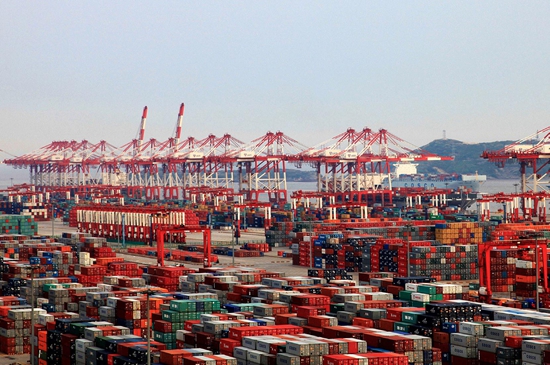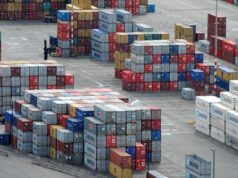
- China’s Purchasing Managers’ Index fell to 49.5 from 50.2 in February, reflecting impact of current wave of the pandemic and the war in Ukraine
- Non-manufacturing PMI eased to 48.4 from 51.6 in February
- Chinese economy is seen to be at risk of slowing sharply as authorities restrict production and mobility in COVID-hit cities, including Shanghai and Shenzhen
China’s manufacturing and services activity simultaneously contracted in March, the first time since the height of the country’s Covid-19 outbreak in 2020, reflecting the impact of the pandemic and the Russian invasion of Ukraine on the global economy.
The decline underscores the urgency of more policy intervention to stabilize the economy, according to analysts.
The official manufacturing Purchasing Managers’ Index (PMI) fell to 49.5 from 50.2 in February, the National Bureau of Statistics (NBS) said on Thursday (March 31), while the non-manufacturing PMI eased to 48.4 from 51.6 in February.
The last time both PMI indices were simultaneously below the 50-point mark that separates contraction from growth was in February 2020, when authorities were racing to arrest the spread of the coronavirus, first detected in the central Chinese city of Wuhan.
The world’s second-largest economy revved up in January-February, with some key indicators blowing past expectations, but is now at risk of slowing sharply as authorities restrict production and mobility in Covid-hit cities, including Shanghai and Shenzhen.
“Recently, clusters of epidemic outbreaks occurred in many places in China, and coupled with a significant increase in global geopolitical instability, production and operation of Chinese enterprises have been affected,” said Zhao Qinghe, senior NBS statistician.
Shanghai’s Covid-19 lockdown roiled auto production in recent days as two major suppliers joined Tesla in shutting plants to comply with measures to control the spread of the coronavirus.
“PMI weakened as the Omicron outbreaks in many Chinese cities led to lockdowns and disruption of industrial production,” CNN quoted Zhiwei Zhang, chief economist at Pinpoint Asset Management, as saying.
Due to the epidemic outbreaks, some companies in certain areas temporarily reduced production or stopped production, which also affected production and operation of both upstream and downstream companies, Zhao said.
“The PMIs probably understate the hit to activity last month,” said Julian Evans-Pritchard, senior China economist at Capital Economics.
“The services index remained above the low of 45.2 that it hit last August during the Delta wave. That’s probably because the survey was conducted prior to the worst disruptions.”
To cushion the impact of new Covid-19 lockdowns, authorities have unveiled steps to support business, including rent exemptions for some small services-sector firms.
On March 30, the government said it will roll out policies to stabilize the economy as soon as possible amid increased pressures.
The central bank, which kept its benchmark interest rate for corporate and household lending unchanged in March, is expected to cut rates and lower reserve requirements for banks as downward economic pressures build, analysts say.
China’s official composite PMI, which combined manufacturing and services, stood at 48.8 in March versus 51.2 in February.








